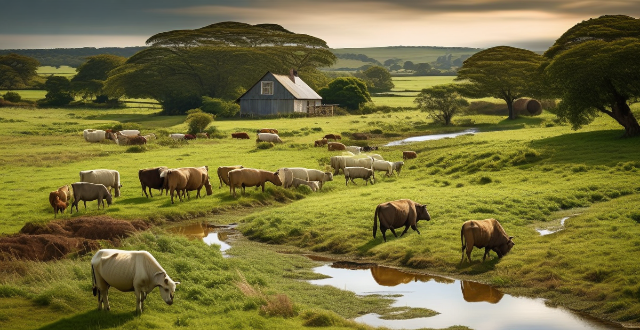Rural homestays, also known as agritourism or farm stays, offer travelers an immersive experience in the countryside by staying with local farmers or residents. These accommodations are located in rural areas and provide guests with opportunities to participate in farming activities, cultural exchange, and enjoy sustainable practices. The benefits of staying at a rural homestay include authentic experiences, personalized service, unique accommodations, support for the local economy, and reduced environmental impact. Overall, rural homestays offer travelers a chance to connect with nature, learn about agriculture, and support local communities while enjoying unique accommodations and personalized services.

What is a Rural Homestay?
A rural homestay, also known as an agritourism or farm stay, is a type of accommodation that allows travelers to experience life in the countryside by staying with local farmers or residents. It offers guests an opportunity to immerse themselves in the rural way of life, learn about agriculture, and enjoy the natural beauty of the surrounding landscape.
Features of a Rural Homestay:
- Location: Located in rural areas, often far from urban centers and tourist hotspots.
- Accommodation: Typically, guests stay in the host's home or on their property, which may include rooms, apartments, cottages, or even tents.
- Activities: Guests can participate in various activities such as farming, gardening, animal care, cooking classes, and hiking.
- Cultural Exchange: Homestays provide a platform for cultural exchange between hosts and guests, allowing travelers to learn about local customs, traditions, and cuisine.
- Sustainability: Many homestays focus on sustainable practices, such as organic farming, renewable energy sources, and waste reduction.
Benefits of Staying at a Rural Homestay:
1. Authentic Experience: Guests can live like locals and gain a deeper understanding of rural life.
2. Personalized Service: Hosts often provide personalized service tailored to each guest's interests and needs.
3. Unique Accommodations: Staying in unique accommodations like historic homes or rustic cabins adds charm to the overall experience.
4. Support Local Economy: By choosing a homestay, travelers directly support local farmers and communities.
5. Environmental Impact: Opting for a homestay reduces carbon footprint compared to traditional hotel stays due to its eco-friendly practices.
In conclusion, a rural homestay offers travelers an authentic and immersive experience into the heart of rural life. It provides an opportunity to connect with nature, learn about agriculture, and support local communities while enjoying unique accommodations and personalized services.